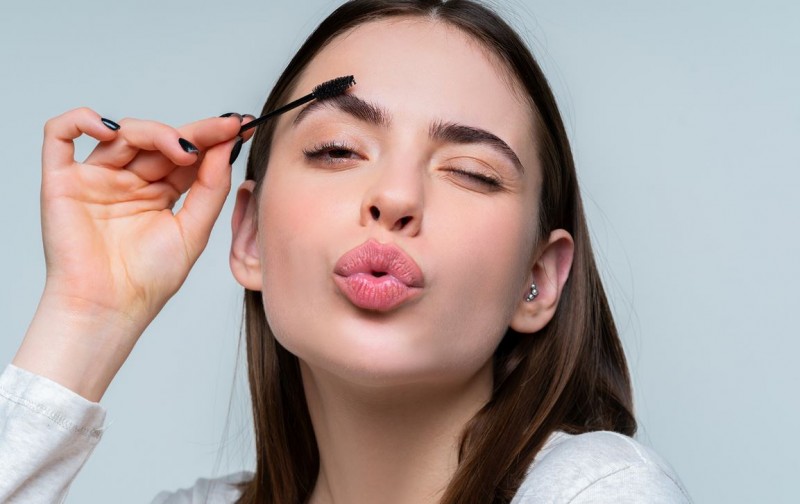
Makeup is an integral part of many women's daily routines, offering a creative outlet for self-expression and enhancement of natural features. However, improper use of makeup products can lead to various skin problems, ranging from irritation to serious infections. In this article, we will discuss some common makeup mistakes that women make and their potential consequences on skin health.
Choosing Suitable Makeup Products:
When it comes to makeup, one size does not fit all. Different skin types require different formulations to achieve optimal results. For instance, individuals with oily skin may benefit from oil-free or matte foundation formulas, while those with dry skin may prefer hydrating or dewy finish products. It's essential to understand your skin type and choose makeup products accordingly to prevent clogged pores, breakouts, or allergic reactions.
Furthermore, considering skin tone is crucial for selecting makeup shades that complement your complexion. Mismatched foundation or concealer can result in an unnatural appearance, emphasizing imperfections rather than concealing them. Therefore, it's advisable to test makeup shades on your jawline or inner wrist to ensure a seamless blend with your skin tone.
Additionally, checking the expiration date of makeup products is essential to avoid using expired or degraded products that may cause skin irritation or infections. Over time, makeup formulations can break down, leading to changes in texture, color, or efficacy. By regularly inspecting the expiration dates of your makeup products and replacing them when necessary, you can safeguard your skin against potential harm.
Prioritizing Skincare:
While makeup can enhance appearance temporarily, maintaining healthy skin requires consistent skincare practices. A proper skincare routine involves cleansing, toning, moisturizing, and protecting the skin from environmental damage. Cleansing removes dirt, oil, and makeup residue, preventing clogged pores and acne breakouts. Toning helps balance the skin's pH levels and minimize pores, while moisturizing keeps the skin hydrated and supple.
Furthermore, incorporating sunscreen into your daily skincare regimen is essential for protecting the skin from harmful UV rays, preventing premature aging, and reducing the risk of skin cancer. Sunscreen should be applied generously and reapplied every two hours, especially when exposed to direct sunlight. Additionally, wearing protective clothing and seeking shade during peak sun hours can further minimize sun damage to the skin.
Moreover, addressing specific skincare concerns, such as acne, hyperpigmentation, or aging, may require targeted treatments or professional interventions. Consulting a dermatologist can help identify the underlying causes of skin issues and recommend personalized skincare solutions tailored to your needs.
Using Makeup Moderately:
While makeup can enhance features and boost confidence, excessive usage can lead to skin problems such as clogged pores, acne, or irritation. Heavy makeup application can suffocate the skin, trapping sweat, oil, and bacteria, leading to breakouts and inflammation. Therefore, it's essential to practice moderation when applying makeup and allow your skin to breathe.
Additionally, opting for lightweight or breathable formulations can minimize the risk of pore blockages and skin irritation. Water-based or mineral makeup products are suitable alternatives for individuals with sensitive or acne-prone skin as they are less likely to clog pores or cause breakouts.
Moreover, removing makeup before bedtime is crucial for allowing the skin to recover and regenerate overnight. Sleeping with makeup on can lead to clogged pores, bacterial growth, and accelerated aging. Therefore, incorporating makeup removal into your nightly skincare routine is essential for maintaining clear, healthy skin.
Keeping Makeup Tools Clean:
Often overlooked, maintaining clean makeup brushes and tools is essential for preventing bacterial buildup and skin infections. Dirty brushes can harbor bacteria, oil, and leftover makeup residue, leading to breakouts, irritation, or allergic reactions. Therefore, it's essential to clean your makeup brushes regularly to remove impurities and ensure hygienic application.
Using gentle cleansers or brush cleaning solutions, thoroughly wash your makeup brushes and allow them to dry completely before using them again. Additionally, avoiding sharing makeup brushes or tools with others can minimize the risk of cross-contamination and skin infections.
Moreover, replacing old or worn-out makeup sponges, puffs, or applicators is essential for maintaining optimal hygiene and preventing skin issues. Over time, makeup tools can accumulate bacteria and lose their effectiveness, compromising the quality of makeup application and potentially harming the skin.
In conclusion, avoiding common makeup mistakes and prioritizing skincare are essential for maintaining healthy, radiant skin. By choosing suitable makeup products, following a proper skincare routine, using makeup moderately, and keeping makeup tools clean, you can prevent skin damage and achieve a flawless complexion. Remember that healthy skin is the foundation of beauty, and investing in skincare is crucial for long-term well-being and confidence.
Prepare Yourself with These Valentine's Day Exercises for You and Your Partner to Stay Fit Together
Metabolism will be boosted, just include these foods in your plate